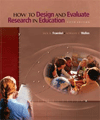The Nature of Action Research - Action research is research conducted by a teacher, administrator, or other education professional to solve a problem at the local level.
- Each of the specific methods of research can be used in action research studies, although on a smaller scale.
- A given research question may often be investigated by any one of several methods.
- Some methods are more appropriate to a particular research question and/or setting than other methods.
Assumptions Underlying Action Research - Several assumptions underly action research studies. These are that the participants have the authority to make decisions, want to improve their practice, and committed to continual professional development, and will engage in systematic inquiry.
Types of Action Research - Practical action research addresses a specific local problem.
- Participatory action research in addition attempts to empower participants or bring about social change.
Level of Participation in Action Research - Participation can vary from information giving to greater and greater involvement in aspects of the study.
Steps in Action Research - There are four. These include identifying the research question or problem, gathering the necessary data, analyzing and interpreting the data, and sharing the results with the participants.
- The participants in a participatory action research study are often referred to as stakeholders.
Advantages of Action Research - There are at least five. It can be done by just about anyone, in any type of school or other institution, to investigate just about any kind of problem or issue. It can help to improve educational practice. It can help education and other professionals to improve their craft. It can help them learn to identify problems systematically, and nit can build up a small community of research-oriented individuals at the local level.
- Action research has both similarities to, and differences from formal qualitative and quantitative research.
Sampling in Action Research - Action researchers are most likely to choose a purposive sample.
Threats to the Internal Validity of Action Research - Action research studies suffer especially from the possibility of data-collector bias, implementation, and attitudinal threats. Most others can be controlled to a considerable degree.
External Validity and Action Research - Action research studies are weak in external validity
- Replication is, of necessity, therefore, essential in these studies.
|



 2003 McGraw-Hill Higher Education
2003 McGraw-Hill Higher Education